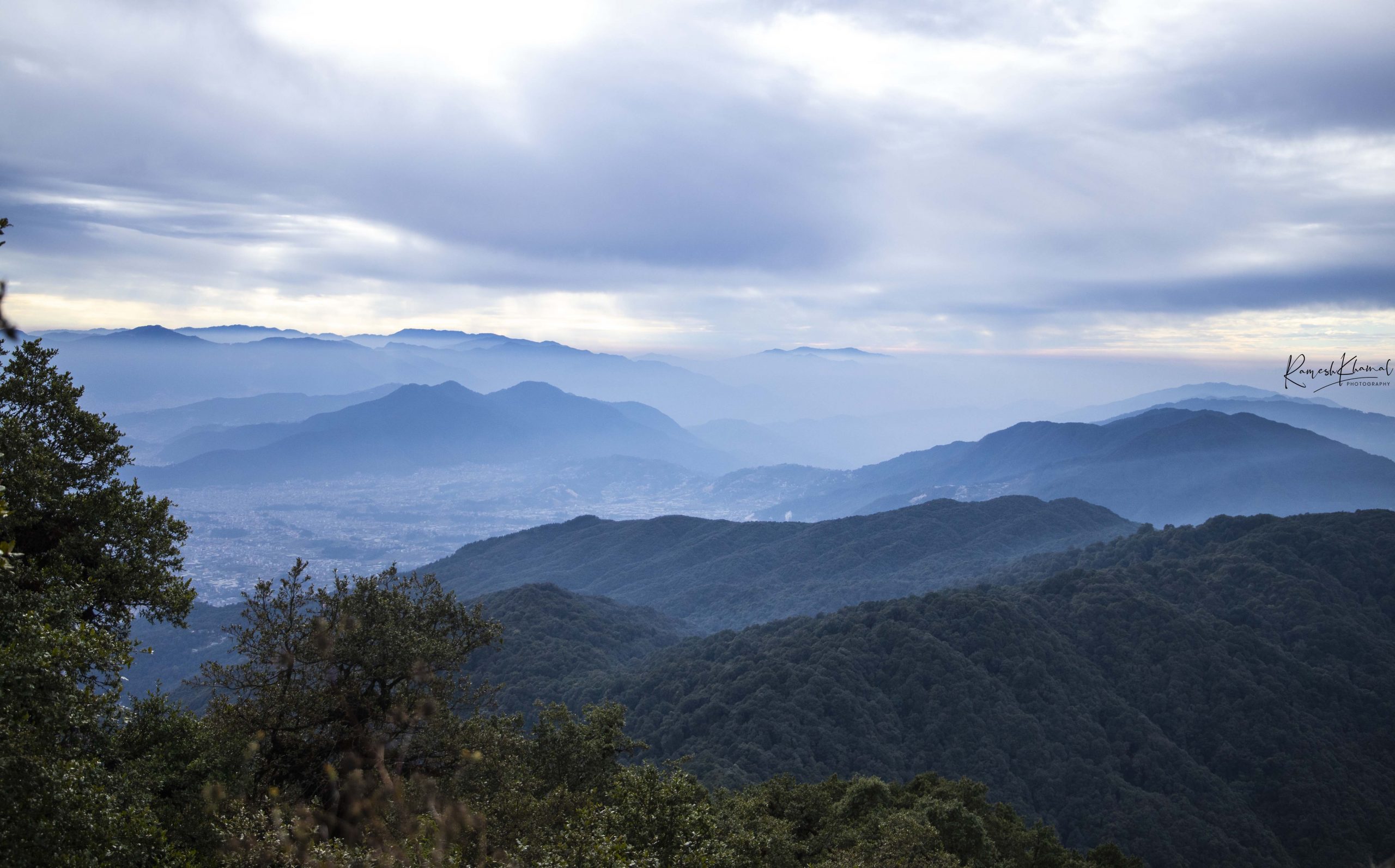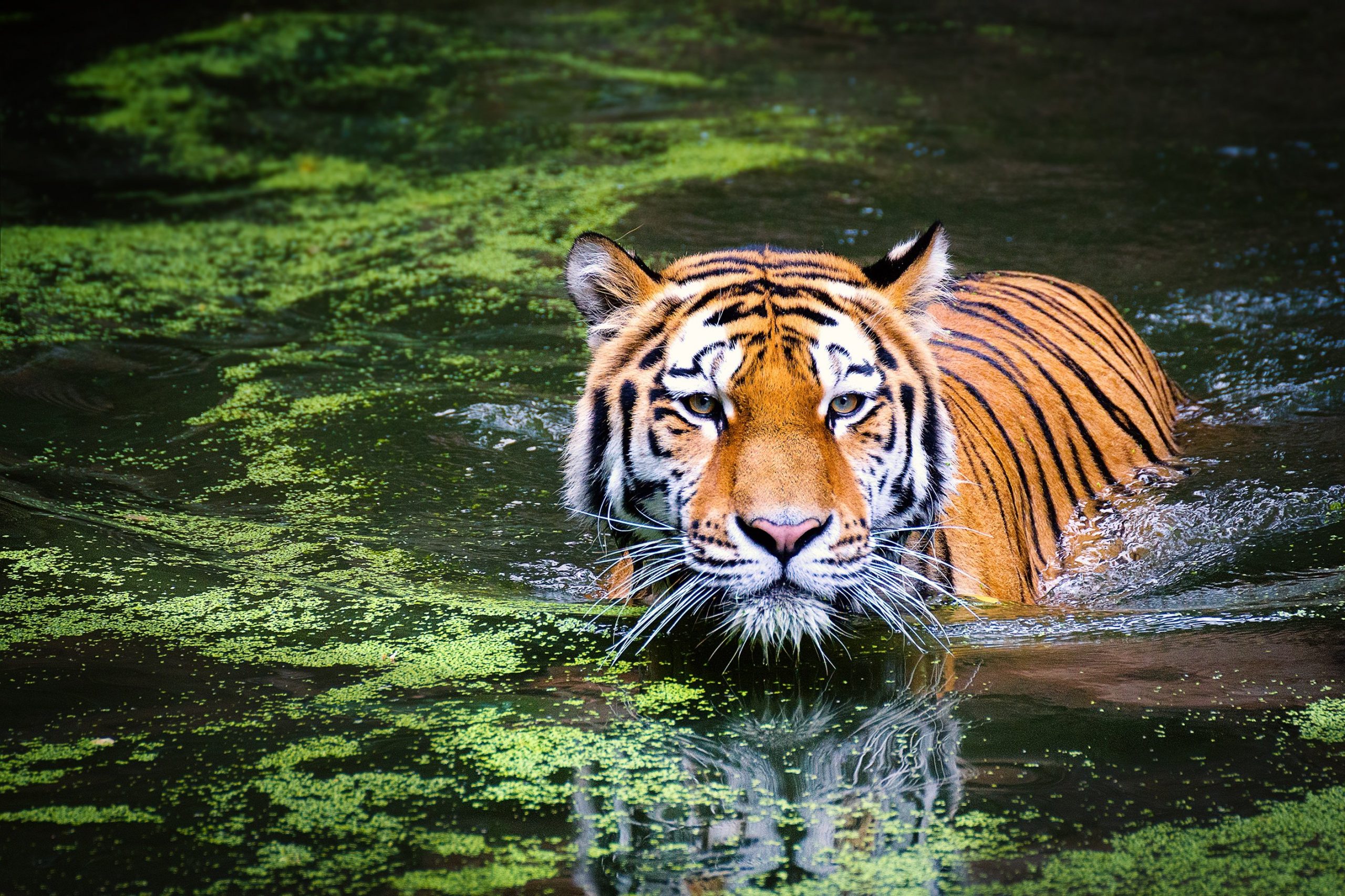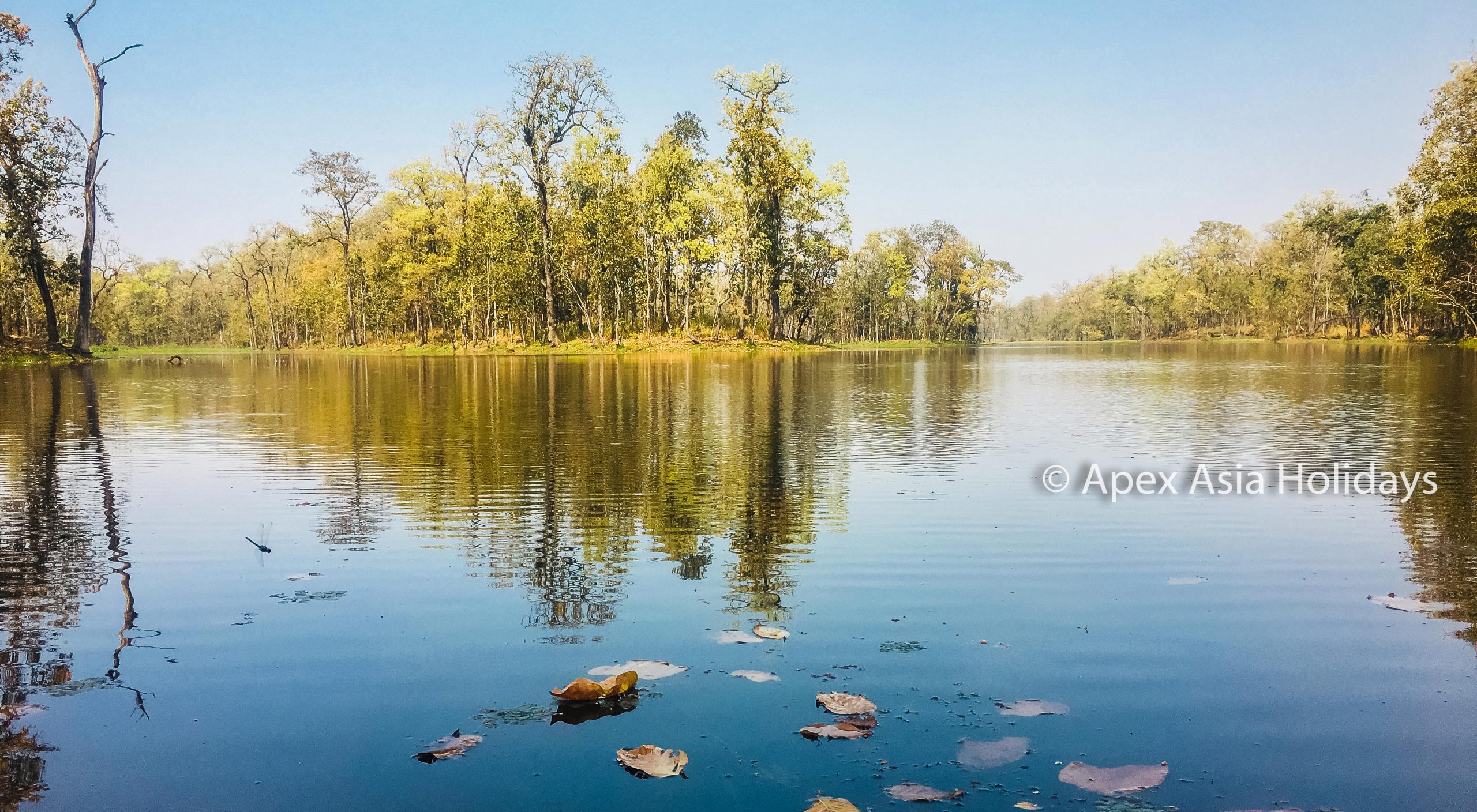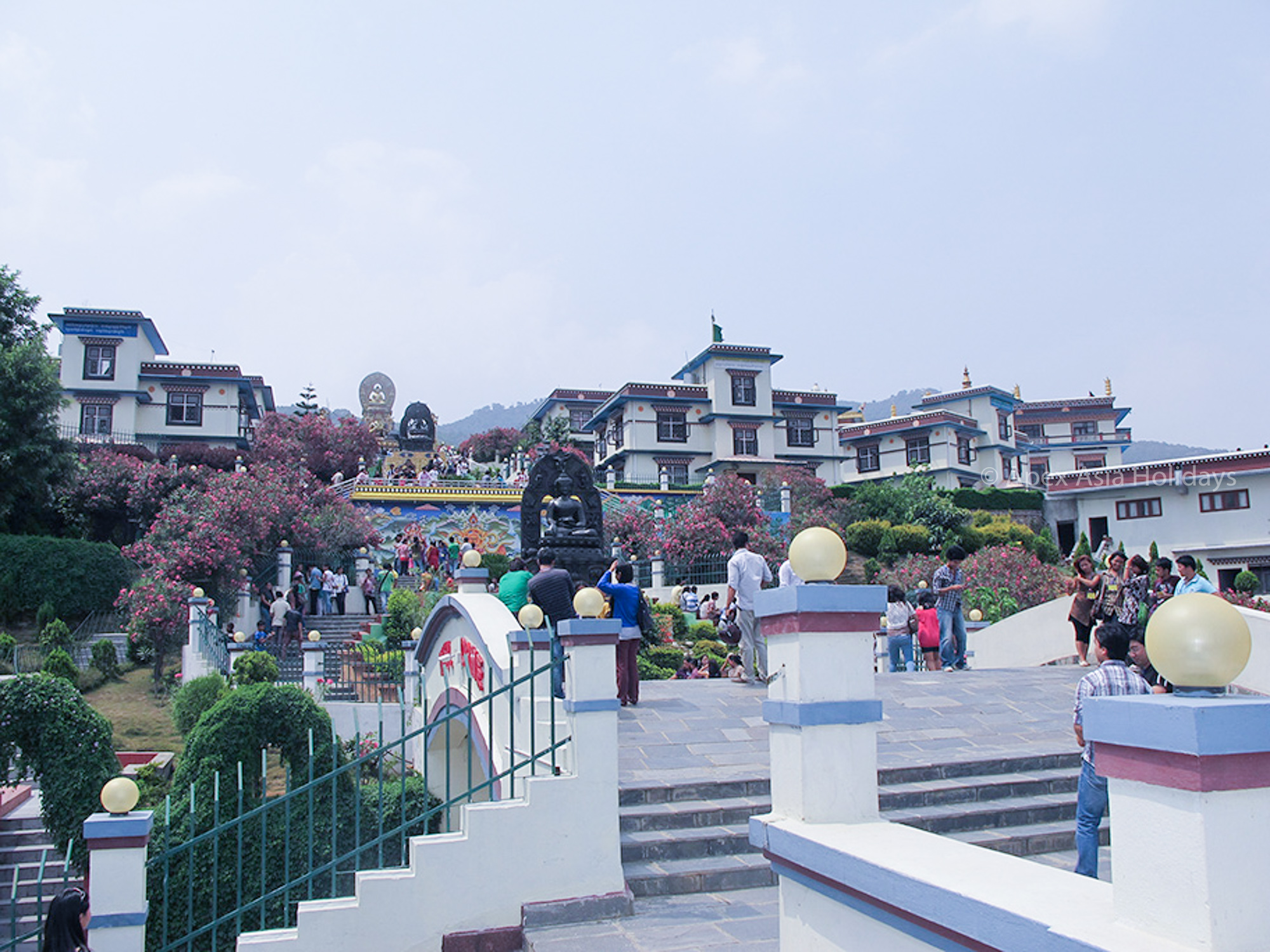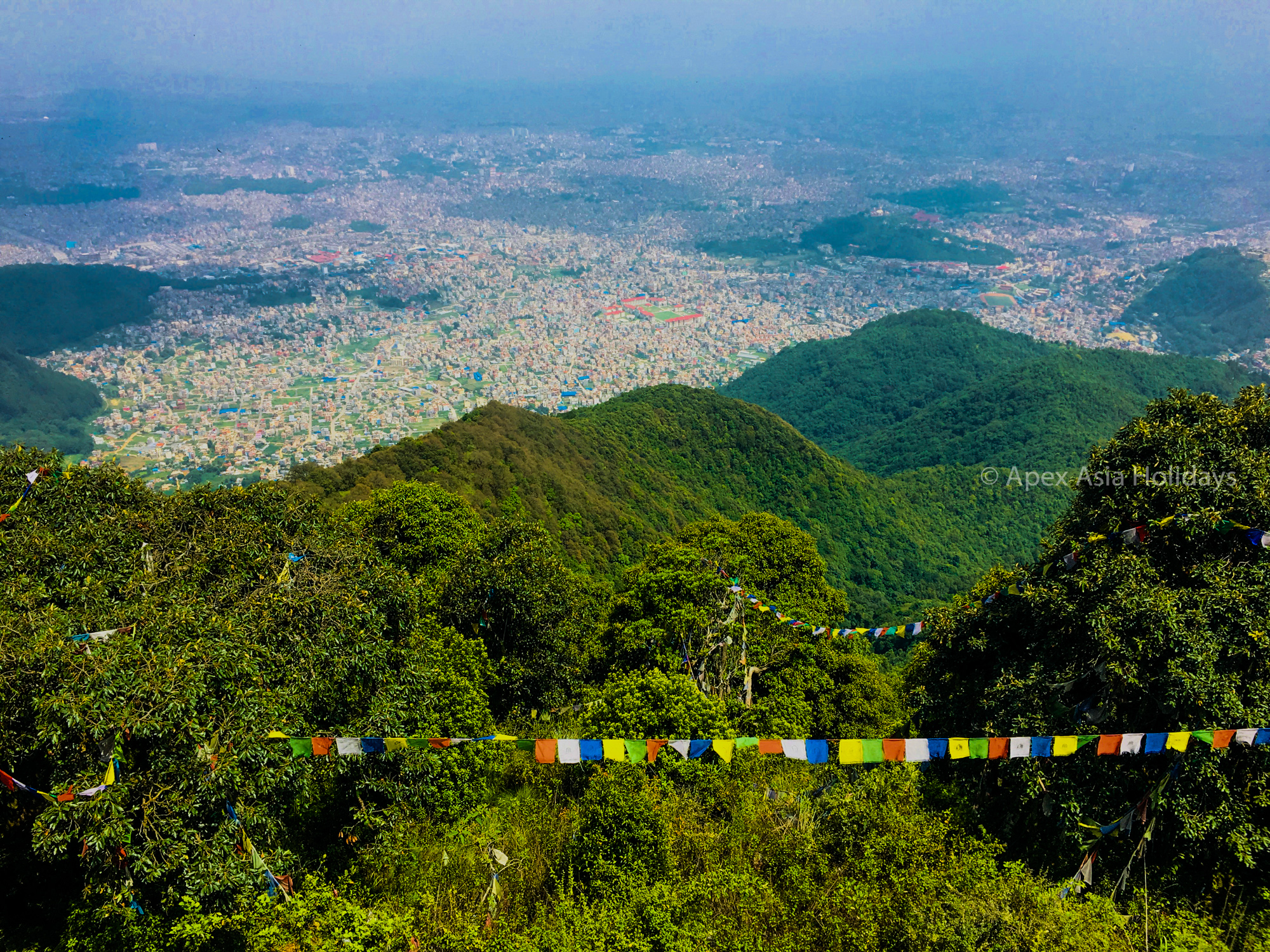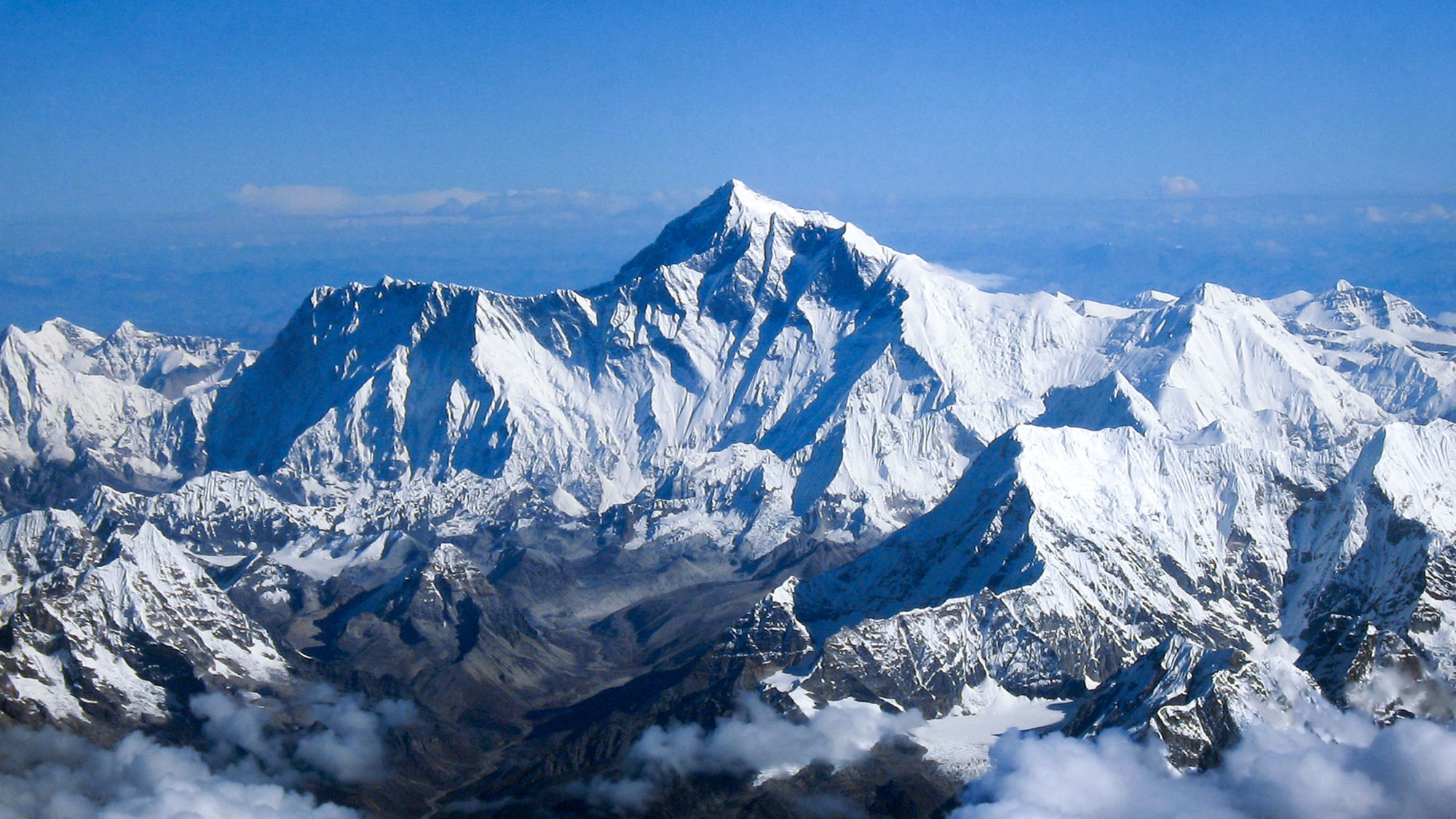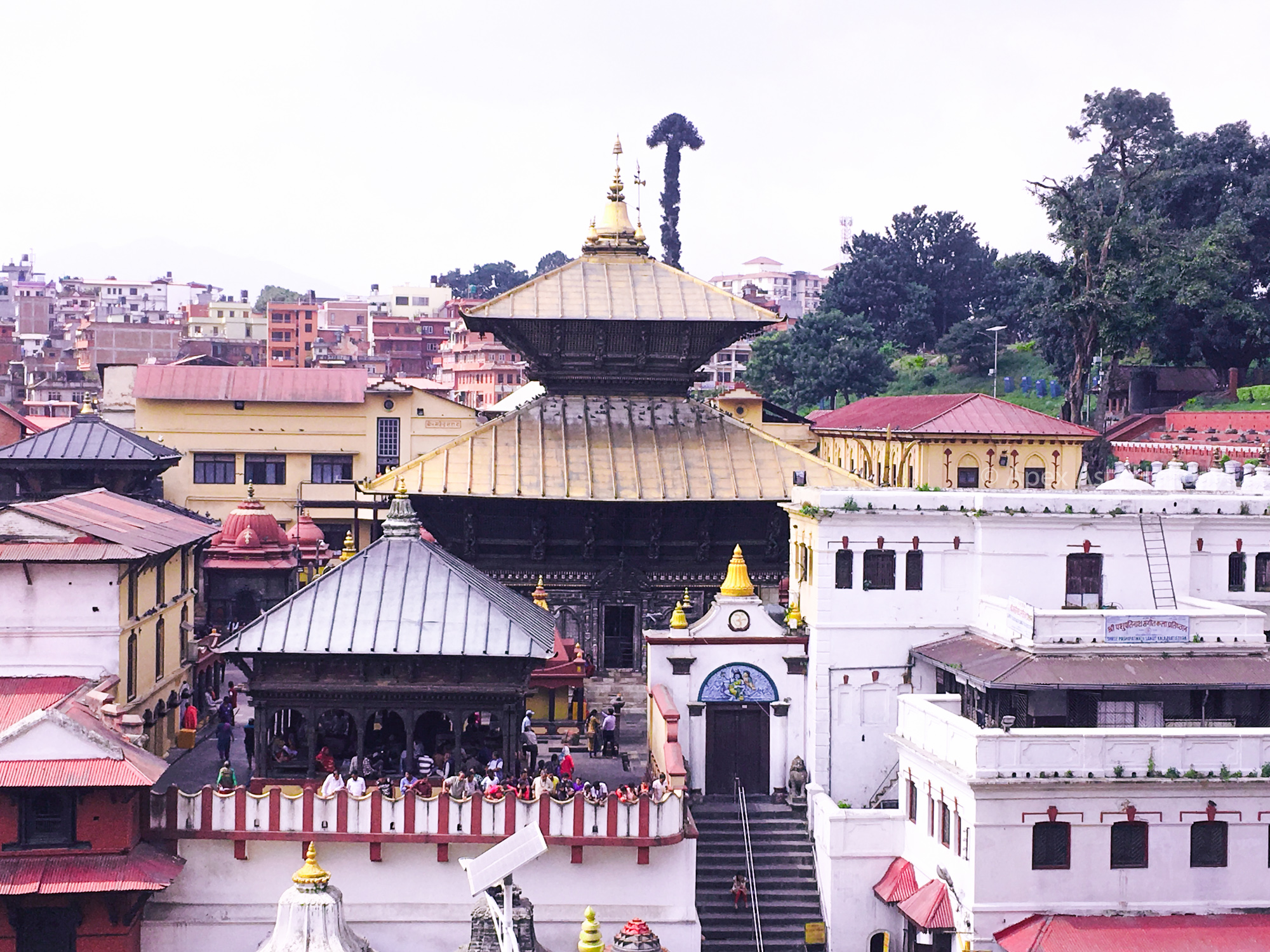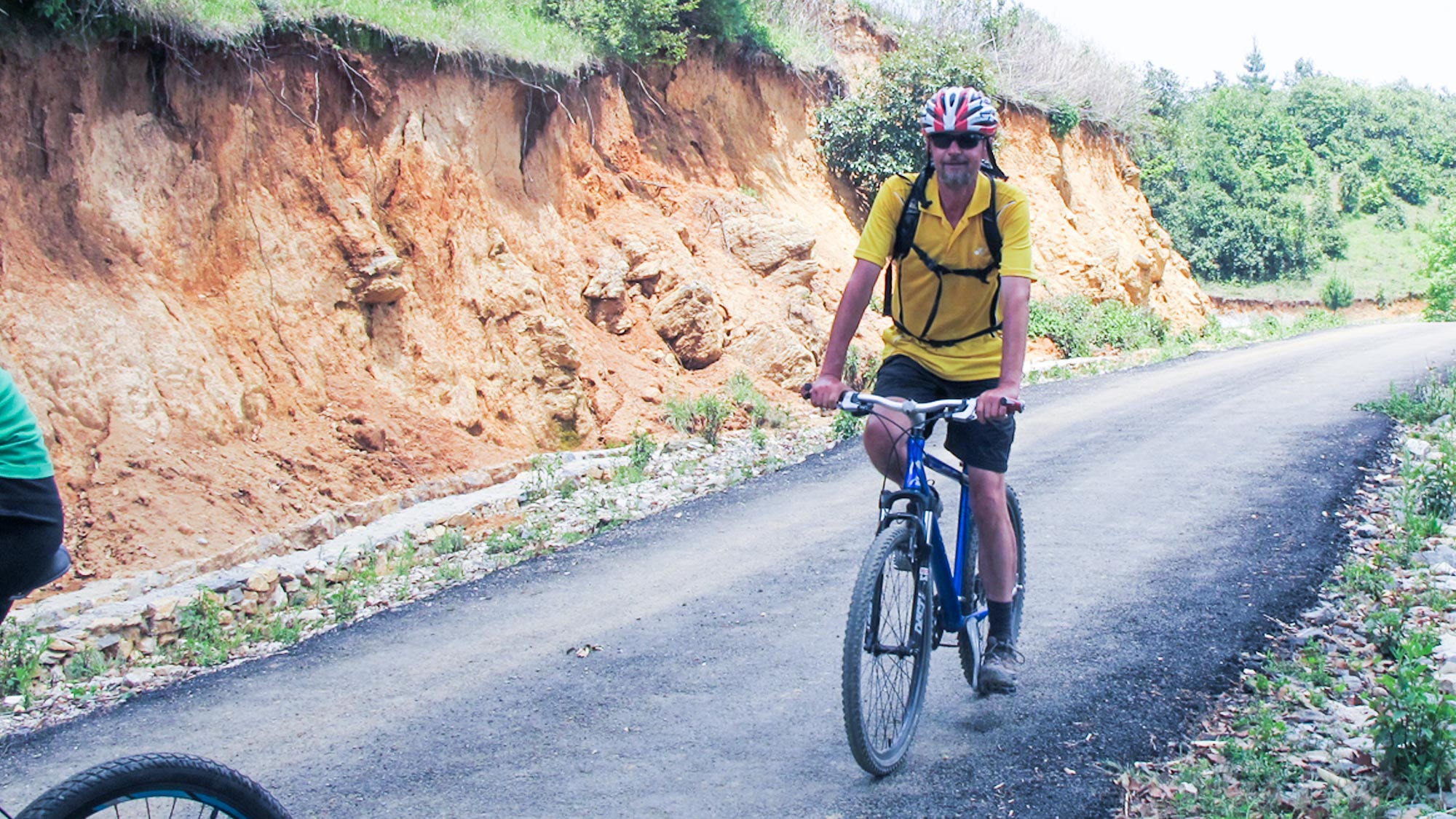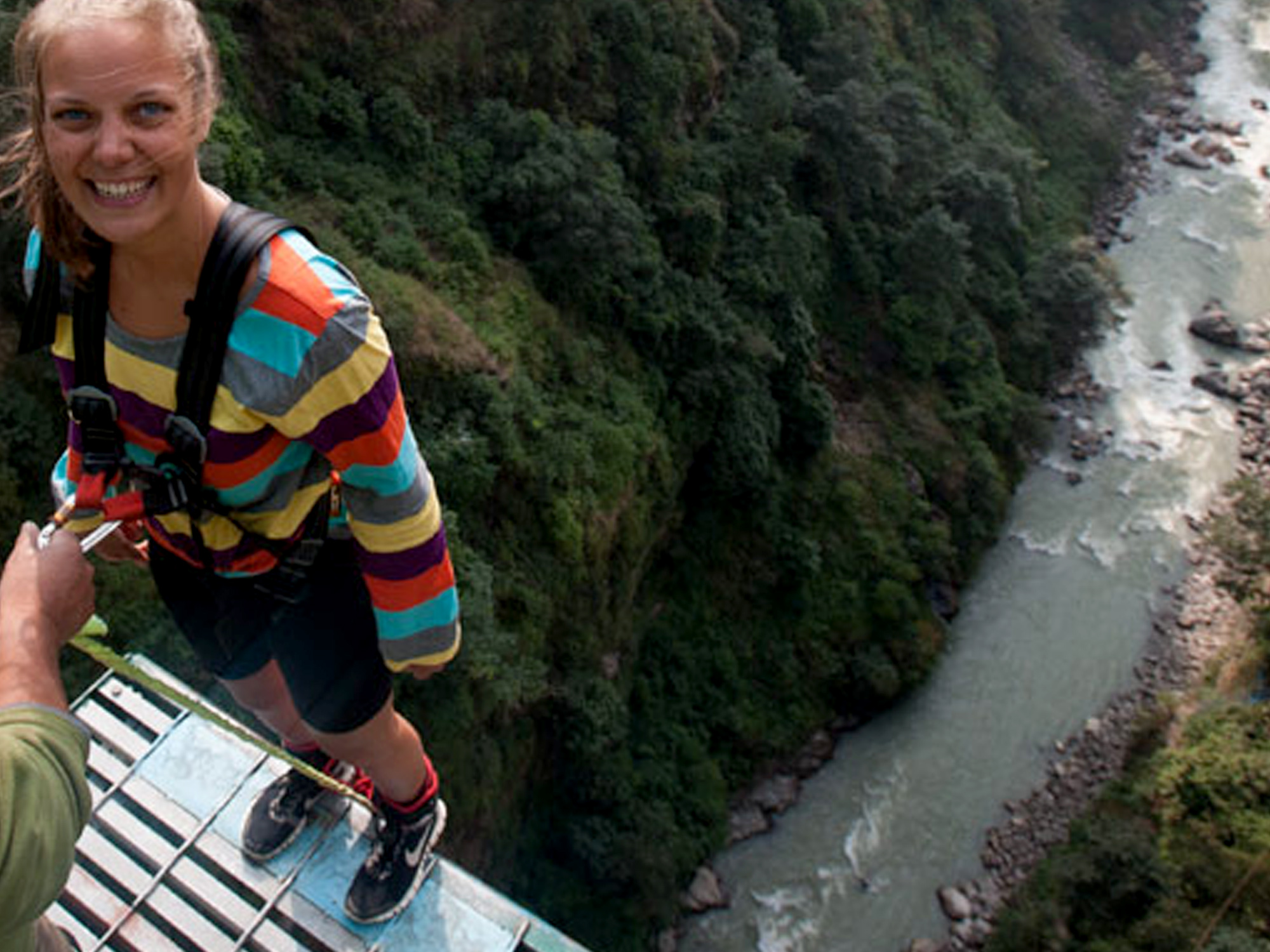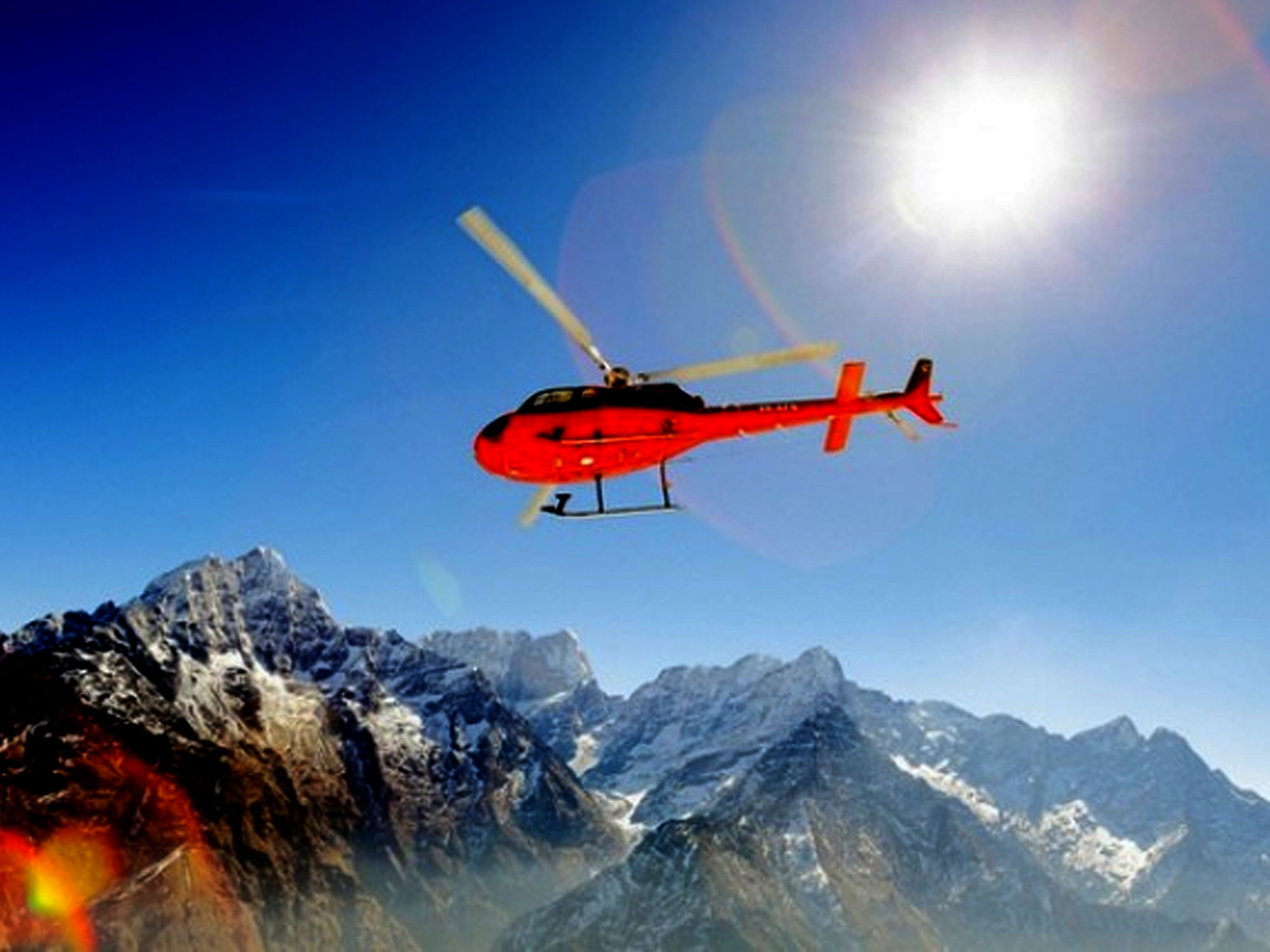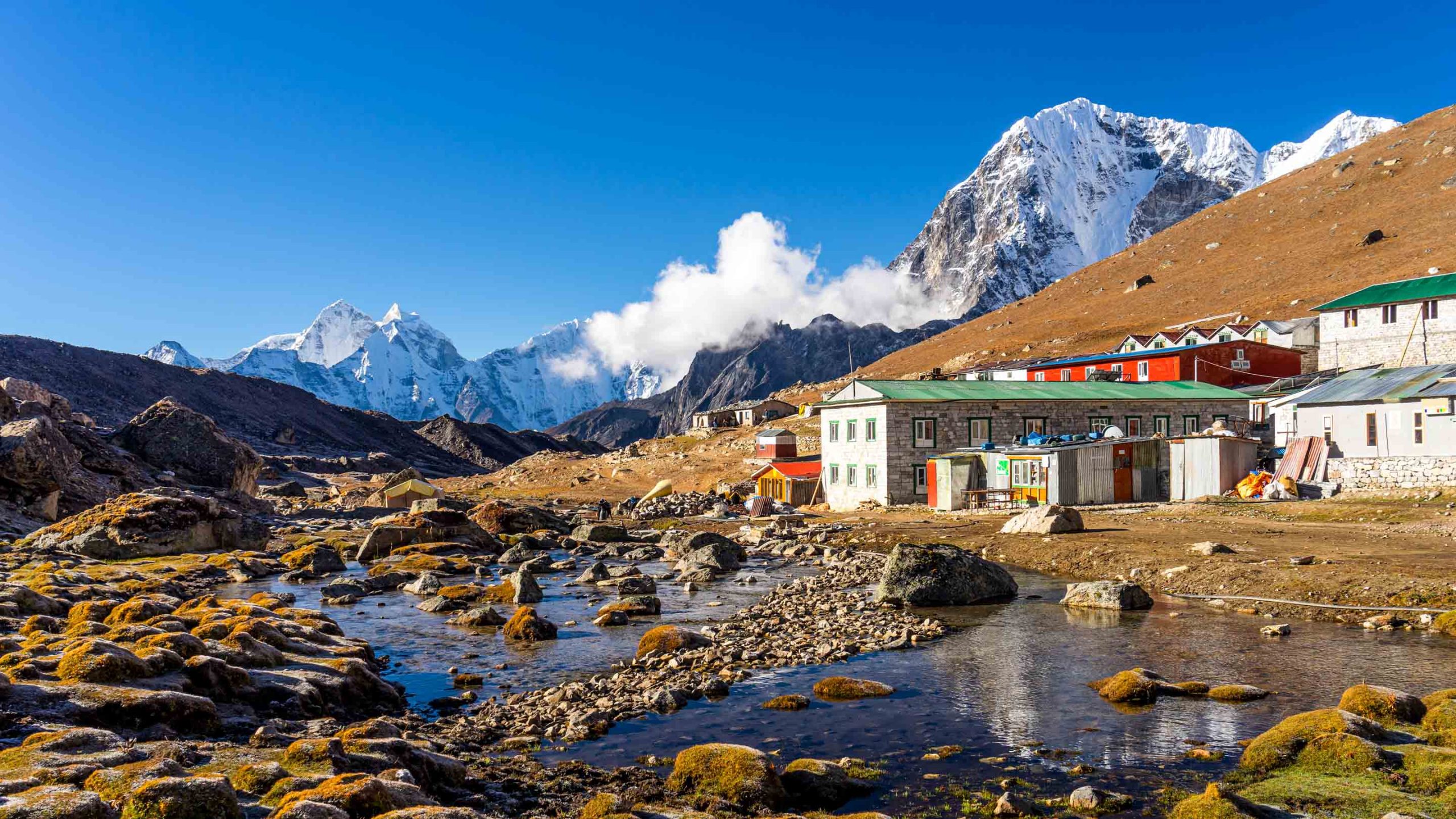Trip Overview
Bhutan is a tiny Himalayan Kingdom in South Asia. It is also known as the Land of Thunder Dragon. The traditional culture blowing as well as global development has enthusiastically embraced in Bhutan. Bhutan is a beautiful landscape of Asia. The snow-capped peaks, primeval green forest, monasteries, and incredible fortresslike dzongs are the beauty of Bhutan. In addition, religiously riches country Bhutan offers the spectacular religious dance festivals, which always fascinates the tourists. Similarly, textile and handicraft, outrageous archery competitions are making the popular in the world. The spectacular trekking trails, and flora and fauna are making Bhutan a popular destination to visit in South Asia.That’s why Bhutan Tour is being popular around the world.
Bhutan holds many surprises, this is a country where smoking is illegible. Rice is red and chilies are the main ingredient of the foods. Bhutan is a Buddhist land, where school kids wear Gho and Kira. Similarly, the next surprise is the painting of penises. Many house have the painting of penis which is protected by the giant at the entrance.
In the week Bhutan tour you will visit some amazing places, towns and valleys. All these have ornamented with natural resources and monasteries, dzongs. ThimpuThe capital city of Bhutan, Thimpu lies western central part of Bhutan. It became capital with replacing the ancient capital city Punakha.
PunakhaThe former capital city of Bhutan, Punakha is 72km far from Thimpu. It is the city of administrative of 20 districts.
TrongsaWe drive through Wangdue and Pela La Pass (3,300m) to reach Trongsa. It is popular for Trongsa Dzong.
ParoParo is the city which is the first step of Bhutan. As like other locations Paro is also popular in Bhutan. The Taktsang Monastery is the eye-catching monastery of Paro.
Tour Highlight
- Experience the Bhutanese Culture
- Tiger Nest Monastery of Bhutan
- Outstanding veiws of valleys, river of Bhutan
- Exploring the Dzongs, monastery and meeting with monks
Trip Itinerary
-
Day 1
Arrival at Paro, Bhutan by Druk Air and transfer to Thimpu.
A scenic flight with Bhutanese national carrier, Druk Air is the befitting introduction of the spectacular beauty of Bhutan. The flight gives stupendous views of worlds highest peaks, and the green lush valley of Paro as you land. Cool and clean air is the first gift of Bhutan. Once you clear the customs you will meet the airport representative and drive to Thimpu. It takes about 1.5 hours. We check into the hotel, where a hot lunch is served.
In the afternoon visit the National Memorial Chorten – built in honor of the Bhutanese late King Jigme Dorji Wangchuk, Folk Heritage Museum – it is dedicated to the Bhutanese rural people past through exhibition of artifacts and items used in rural households. Textile Museum, where you can see traditional weaving.
-
Day 2
Explore Thimpu.
After breakfast, we visit the Institution of Traditional Medicine, where still practicing the old healing arts such as acupuncture and herbal remedies. In the afternoon we visit Weekly Outdoor Market, where everyone goes to buy fruits, vegetable, grains, rice, and other fresh food. The busy market offers the colorful local products such as duster made by yak tail, butter teacup, turquoise from Nepal and Tibet, and musical instruments. Continuously we visit Bhutanese Handmade paper factory, Zilukha Nunnery, Motithang Mini Zoo etc.
-
Day 3
Drive to Punakha.
Today after breakfast at the hotel we depart to Punakha, the ancient capital of Bhutan. We leave the Thimpu road and climb up through pine and cedar forests with hanging lichen high up near Dochula Pass (3,050m). At the top, we stop for tea and view of Himalayan range. Then descend along a series of hairpin bends to the Punakha valley and drive to Punakha Dzong. The Dzong is located in between the rivers of the Mo Chu and Pho Chu. In the Afternoon hike up to Nyizeragang Chorten, the hike is around 2 hours up and down through terraced rice fields.
-
Day 4
Punakha to Trongsa
Today after breakfast we start to drive the central valley of Bhutan via Wangdue and Pela La Pass (3,300m) to Trongsa. Wangdue is one of the major towns of western Bhutan, where we stop to visit the Wangdiphodrang Dzong. It is located at the confluence of Tsang Chu and Dang Chu rivers. After that, we steadily pass through semi-tropical vegetarian to get the Pele La Pass with an alpine environment of rhododendron and bamboo. The pass is also considering as the border of east and west Bhutan. En route we cross the Chendebji Chorten which was built centuries ago, after which we visit the Trongsa Dzong, the ancestral home of the ruling dynasty.
-
Day 5
Drive to Gyantse- Wangdue
After breakfast we drive back over the Pela La Pass via Gantey, where we visit a gompa which was built centuries ago in the 17th century. Once we cross the Gompa we see the valley which is described as the “the most beautiful valley of Himalayas.” The valley is the homeland of black-necked cranes. The continued drive to Chhuzomasa thru the forest of Rhododendron, Magnolia, Cherries and Chir pine make a rewarding trip.
-
Day 6
Wangdue- Thimpu- Paro
After breakfast depart to Paro via Thimphu and pay a visit to the Royal Botanical Garden, which has a good collection of different species of wildflowers and plants.
-
Day 7
Sightseeing in Paro and Hike up to Taktsang Monastery
After breakfast, we drive towards the north of Paro to visit the ruins Dzong Drukgyal Dzong, which was built in 1647 by Shabdrung Ngawang Namgyal. The dzong was destroyed by accidental fire. Explore the ramparts and collect gorgeous view of Mt. Jomalhari (7314m) and then drive beyond Satsam Chorten to hike up to the Taktsang Monastery, also known as the Tiger’s Nest. Reach the viewpoint after hiking efforts of one and half hour, then enjoy the stunning view of the monastery, where guru Padmasambhava landed on the back of tiger in the 8th century. After lunch visit Kyichu Lhakhang one of the oldest temples in Bhutan. The evening ends with the walk through the Paro.
-
Day 8
Paro- Final Departure.
After breakfast, our airport representative will pick you up and drop off to the international airport.
Itinerary Info
Standard Itinerary and Private Trip
It is the notice about Standard Itinerary and Private Trip. The provided itinerary is standard, and if you want to customize it, you can do it. OR you can go through our Plan Your Holidays page.Travel Insurance and Covers
We strongly recommend you have travel insurance that covers the adventure activities such as trekking/hiking above 15,000 feet. And must include flights delayed/canceled by bad weather, accidents, evacuations, etc.Keep in Mind
Sometimes, unusual weather changes, natural disasters, flight delays, and cancellations, government rules, local political situations, health conditions of trekkers may change your itinerary. At that point, our leading guide will decide and try to minimize the impacts and run the trip smoothly, but we are not liable for any additional costs if needed.Always options for Upgrade
Please you can upgrade your accommodation and transportation service to regular. We can provide you with 5Star hotel accommodation and the best available private car/ jeep services. And also domestic flights including the Helicopter Charter.
HOW ARE WE DIFFERENT?
We operate this trip with aiming:
- To improve the lifestyle of local people
- To protect the environment
- To respect and promote the culture of the local community
- To create the Volunteering Opportunities
- To donate 5% of each trip cost to the COSD Nepal organization
We hire the local people as trekking staff, which creates the opportunity to learn and share the cultures, get exposure to local traditions. You can enjoy the local product feasts in the teahouses and lodges that directly help their business.
- Namaste [Namaste is usually spoken with a slight bow and hands pressed together, palms touching and fingers pointing upwards, thumbs close to the chest] is the respectful greetings in Nepal.
- Walk-in clockwise direction around temples, monuments, MANE Stone, MANE-wall is the culture of Hinduism and Buddhism.
- Enter temples and with removing shoes and also leather.
- Ask permission to take any portrait of locals.
- Use right while giving and receiving food, eating, wiping mouth, etc.
- Please dress in loose-fitting clothes while entering temples and monasteries.
A small group of travelers led by the local trek leader, we try to minimize the impacts on natural resources and the environment during the trips. We emphasize reducing waste. Encourage travelers to use a refillable water bottle instead of a single-use bottle.
We are also a supporter of the Community Organization for Sustainable Development Nepal (COSD Nepal). And, we collect 5% of the total payment of each trek to contribute to the organization.
Volunteer Opportunity
We have a volunteer trip operating in a local school in Gorkha. Through this trip, you can directly support the children also the teachers’ educational status.
Add-on Activities
Equipment List
Here you will get a basic idea of the equipment and items of clothing that you need to carry on the trip. Apex Asia Holidays provide you with a gratis duffel bag in Kathmandu to pack your trekking luggage.
Note:
- Non- trekking items can store at the Hotel lockers in Kathmandu.
- If you are trekking in Everest Region: Kathmandu- Lukla Flight only allows the 15KG including hand-carry bag.
- You must have to carry a down jacket from above 4000 meters to keep warms. You can hire a down jacket and sleeping bag for USD 30 with us.
Upper Body - Head / Ears / Eyes
- A cap to protect your ear and neck from sunlight
- Warm wool or synthetic hat
- Neck Warmer
- UV protective glaciers sunglasses - better to have side shield.
Hand
- A pair liner woolen gloves for mild days and heavy for morning and evening
Core Body
- Three cotton t-shirts
- Three synthetic t-shirt
- Two long sleeve polyesters, light colored shirts for sunny days.
- A soft shell jacket, water resistant, with insulation, underarm ventilation zippers. The full front zipper is preferable for ventilation.
- For women two synthetic sports bras, no cotton.
- Two pairs of nylon hiking shorts.
- Underwear, stay away from cotton.
- Two pairs lightweight long underwear.
Lower Body
- Two pair trekking pants, preferably that zip on/off at the knees.
Feet
- At least four pairs of liner socks, synthetic. And three pair heavyweight socks to be worn over liner socks.
- A pair of lightweight socks, a good option for the lower / warmer parts of the trail and also on lodges at the time of dinner.
- A pair light to medium weight waterproof hiking/trekking boots. Make sure the size and should have to be avoidable for blister.
- A pair light trekking shoes or sneakers to wear in and about camps or lodge.
- Shoes
Other Essential
- Small Day Pack
Medicine and First Aid
- Ibuprofen for general aches and pains
- Extra Strength Excedrin for altitude related headaches
- Immodium or Pepto bismol capsules for upset stomach or diarrhea
- Anti-infection ointments
- Band-aids
- Lip balm (At least SPF 20)
- Sunscreen (SPF 40)
Miscellaneous but Important
- Passport and extra passport photos (2 copies)
- Airline tickets
- Durable wallet/pouch for travel documents, money & passport
- Water bottle/bladder
- Water purification Iodine tablets
- Toiletries
Important Info
-
TRANSPORTATION
In Nepal, there are two kinds of transport, public and private. We mostly recommend you to use the private than the public because the roads two ways that make traffic, and the private vehicle can avoid the traffic by choosing the proper time for less traffic.
-
MEALS
In Nepal, you will get the extensive food menu. From the international food menu to local foods. Dal Bhat is the main course of Nepal. Your guide will help you to choose the suitable food, on the trek and tour.
-
ALTITUDE SICKNESS
Trekking is the popular trekking ventures in Nepal, which is always in the High Himalaya and where we have the chance to get altitude sickness. So, it is highly recommended to learn more about the High Altitude Sickness before you start the trek. Hurry can be deadly in Nepal Himalaya. Walk slow, and give enough time to your body to fit in the high altitude. Drinking more water and stepping slowly with rest is the best protection against altitude sickness.
-
INSURANCE
It is necessary to have travel insurance before you embark on any trip. The insurance policy should include the cost of medical expenses, any damage or loss of your luggage, and cancellation.
-
SAFETY
Nepal is one of the safe and more peaceful countries around the world. Even though you must have your Travel Insurance and the should cover the area which is on your itinerary.
-
RESPONSIBLE TRAVEL
Traveling is the way of getting in touch with the local peoples. It is important to recognize what is acceptable in the society, such as dresses, behaviors, and language. There might be different than your own country. Most of the people can communicate in English in the cities and also some touristy towns but if you have learned a few words Nepali, like greetings “Namaste” that make a huge difference.
-
HEALTH & SAFETY
Apex Asia Holidays always concern about the health and safety of the clients. Our guide carries a first aid kit with the directed medicine by the doctors. We also recommend you to discuss with your doctor about your visit at least a month ago. In case of severe or emergency, we transfer you to the nearest hospital. Safety is the first important for us as a responsible tour agency, so we do not take unnecessary risk.
Why Book With Us
- Great Value Guranteed
- Small Group Size
- Local Expert Guides
- Hassel-Free Booking
- Social Responsible
- Excellent Service
Frequently Ask Question
-
What is the time zone of Nepal?
NPT (UTC+05:45)
-
Do I need to tip the guide and porters? What is the standard tip?
Tips is expected by your team members and normally the standard is 10% of your total trip cost.
-
Do you arrange the International and domestic flights?
Yes, we can do as per clients’ require. Normally, we arrange all domestic flights and if you required we can arrange also international tickets.
-
Can I change my itinerary?
Yes, customizing the itineraries is the feature of Apex Asia Holidays. And you can also visit the Plan Your Holidays link.
-
Is it possible to extend trip?
Sure, you can extend your entire trip and also you can do extended trip.
-
Is it possible to use credit card during the trek/ tour?
Using card is not possible in all trekking town except Namche of Everest region. But in the cities you can use the cards.
-
Can I charge the batteries of cameras, phones?
Yes, you can charge your devices, but recommended you to bring your plugs, chargers and also do not leave unattended anything while charging in a lobby or somewhere in trekking guesthouse. And if you are in camping trek it’s quite hard to charge the phone so advising to bring portable charge.
-
Is there any possibility to communicate in my hometown?
Yes, you can. In the Everest and Annapurna region you can connect via Phone, Internet both is available in most of town and, in some remote routes you may need to use satellite phone that are carry by you trek guide or also get in the local town.
-
Do you provide any equipment for the trek?
Apex Asia Holidays provides you a basic equipment like Sleeping Bag, Down Jacket, for tea-house trek. And for the climbing trip we provide the basic equipment. For camping trek check it once including section.
-
Is the shower facility during the tour/trek?
Yes, you can have shower during the trek. In camping trek you will get shower in shower tent which is basically provide 3-4 times in whole trek it is depending on the duration of the trek. And in a tea-house trek we will provide you attached room where is possible and the rest of town you will payable shower.
-
What are the accommodations and meals like?
All the meals that you provided are hygienic and fresh. While you are in camping trek you get meals prepared by professional camping cook. And if you are doing tea-house trek you will get the main course as like in the cities. For accommodation in the camping trek you will have a tent with good qualities mattress and sleeping bag. And if you are in tea-house trek you will normal twin sharing room in basic facilities with warm mattress and blanket, and also we provide sleeping bag if you need.
-
Is the drinking water okay? Or I need to use tablets?
For drinking water you can buy bottle water that purified mineral water in tea-house trek and city tour. And in camping trek the camping cook provides you boiled water. For some case of remote area trekking it would be better to have some purification tablets that you can buy in Kathmandu.
-
How big is a group size?
We will try to arrange small group of willing people, which immortalized the treks. Normally we encompass 12 -16 people in a group. (This is not to apply for them who want to do Private Trip, no minimum and maximum for them.)
-
Do you arrange the private trip?
Yes, of course we will arrange private tour.
-
Should I need to join the group?
Joining in a group is depending on your booking and option that you choose. If you have booked for Private Trip then obviously you will not join. Otherwise normally the same trip is departing in a same day then the group will join.
-
Are the staffs insured of your company?
Yes, all of the staffs and crew members are the insured.
-
What sort of ground transportation you use?
Normally we assign a car up to 2 people and Jeep for up to 5 people and then Micro Bus for up to 14 PAX and Coster and Sutlej Bus depending on group size. There are some trekking routes, which are dirt road for them we assign 4WD Jeeps. It also depends on what services you opt.
-
Are the treks and tours secured? What about the security?
Provide the security to our clients is principal of us. The government licensed holder guides and other crew members are carefully assign for your trip. Even though, would like to counsel you to take care of your personal equipment, bags. If you doing a tea-house trek your accommodation are in a local guesthouse, where you have to be precaution yourself at all time. And if you are in a camping trek always keep your own bags inside the tent and while in nighttime please keep your bag in the middle of the tent. The camping leader assigns a Sherpa as a guard throughout the nighttime.
-
Do my guide/porter speak English?
Definitely they speak English. All the guides are professional and due to the professionalism they speak good English. The guide’s English is enough to explain about the local culture, activities, and religions.
-
Do you peak me up at the Airport upon my arrival?
Yes, our airport representative welcomes you at airport and transfer to the hotel in a private tourist vehicle.
-
What is the fitness required for the treks?
Generally, to trek in Nepal we should have good physical and health condition. And also able to walk 4- 7hrs in day at high altitude with your little backpack.
-
When is the best season for treks in Nepal?
From March to mid of June and September to December is the best season for treks.
Why travel with apex asia holidays
Since 2015, we have operated unique itineraries and happy trips that are a once-in-a-lifetime experience. We focused on the fun factor and challenged you aptly to reach that great feeling of personal accomplishment while enjoying the company of like-minded travelers.
Make your journey fruitful by choosing to travel with a local company. We know each holiday is different. With the guidance of our travel experts and first-hand experience, we can customize every element of your holiday. We create travel packages that transcend our clients’ expectations. We invite you to discover what you’ve been missing. These are some of the difference that makes All-Travel unique.
Explore More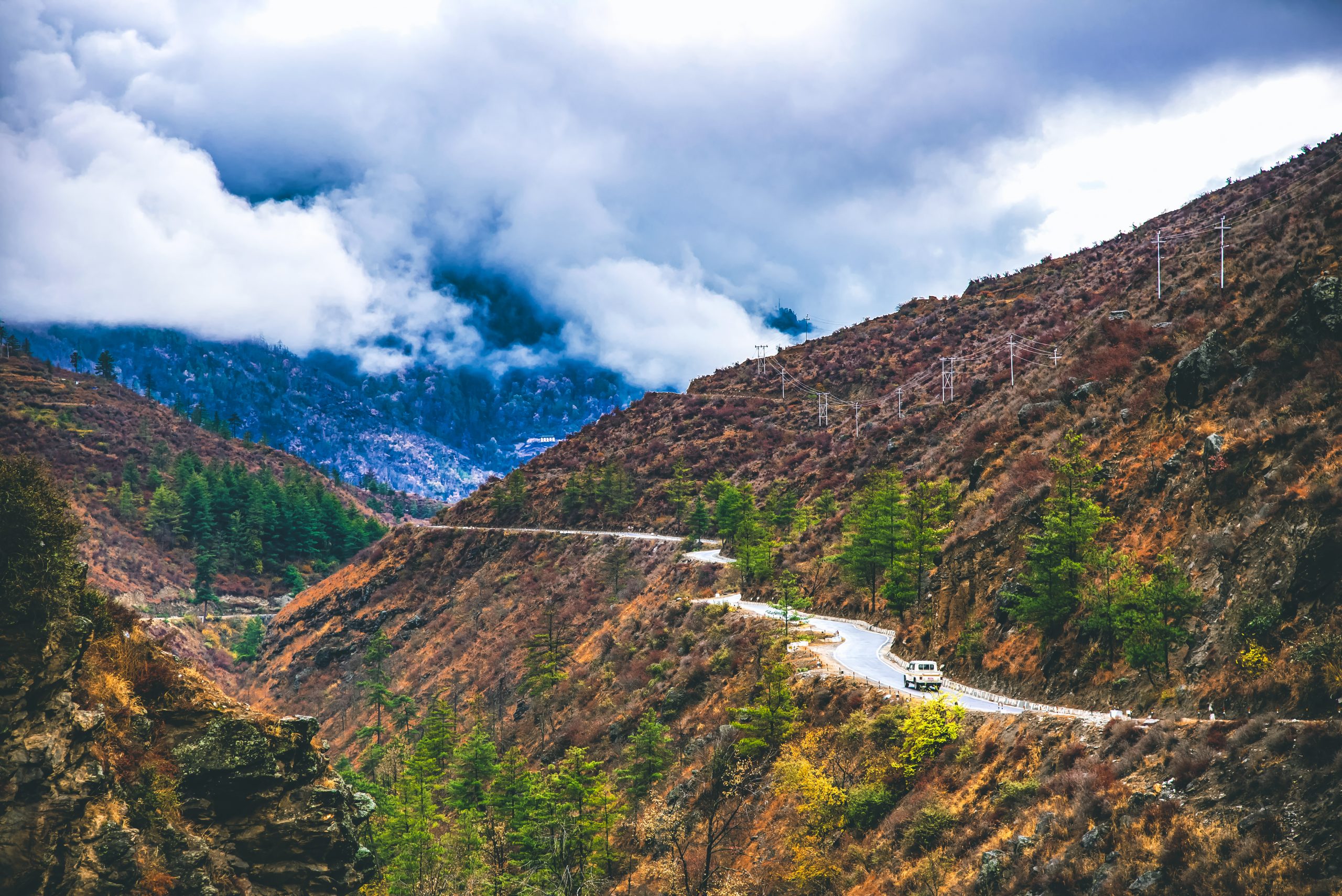
 Group Size:
2PAX
Group Size:
2PAX  Duration:
8 Days
Duration:
8 Days 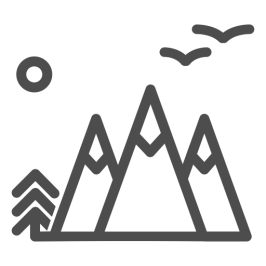 Max Altitude:
1500
Max Altitude:
1500  Trip Grading:
Easy
Trip Grading:
Easy  Trip Start:
Paro
Trip Start:
Paro  Trip End:
Paro
Trip End:
Paro  Average Dist. per Day
100 km
Average Dist. per Day
100 km  Average Time per Day
6hrs
Average Time per Day
6hrs 